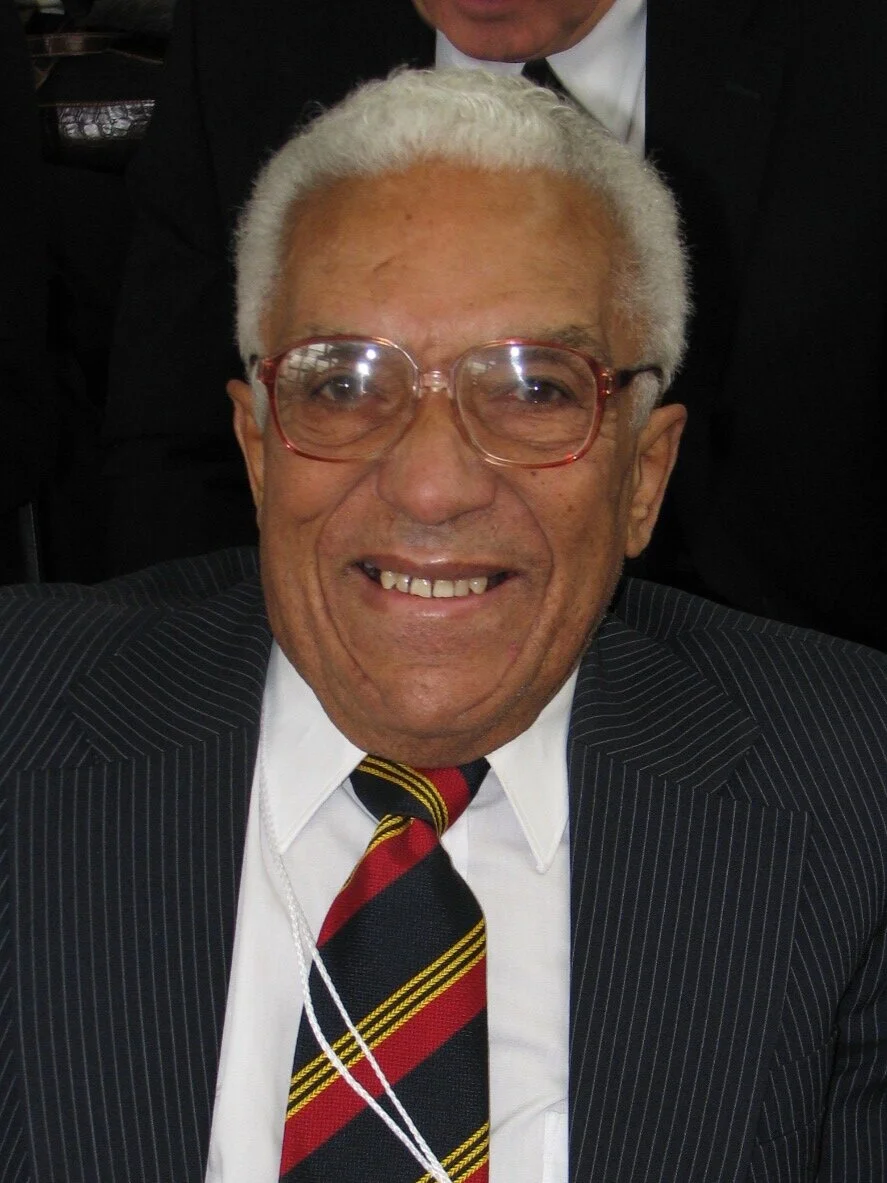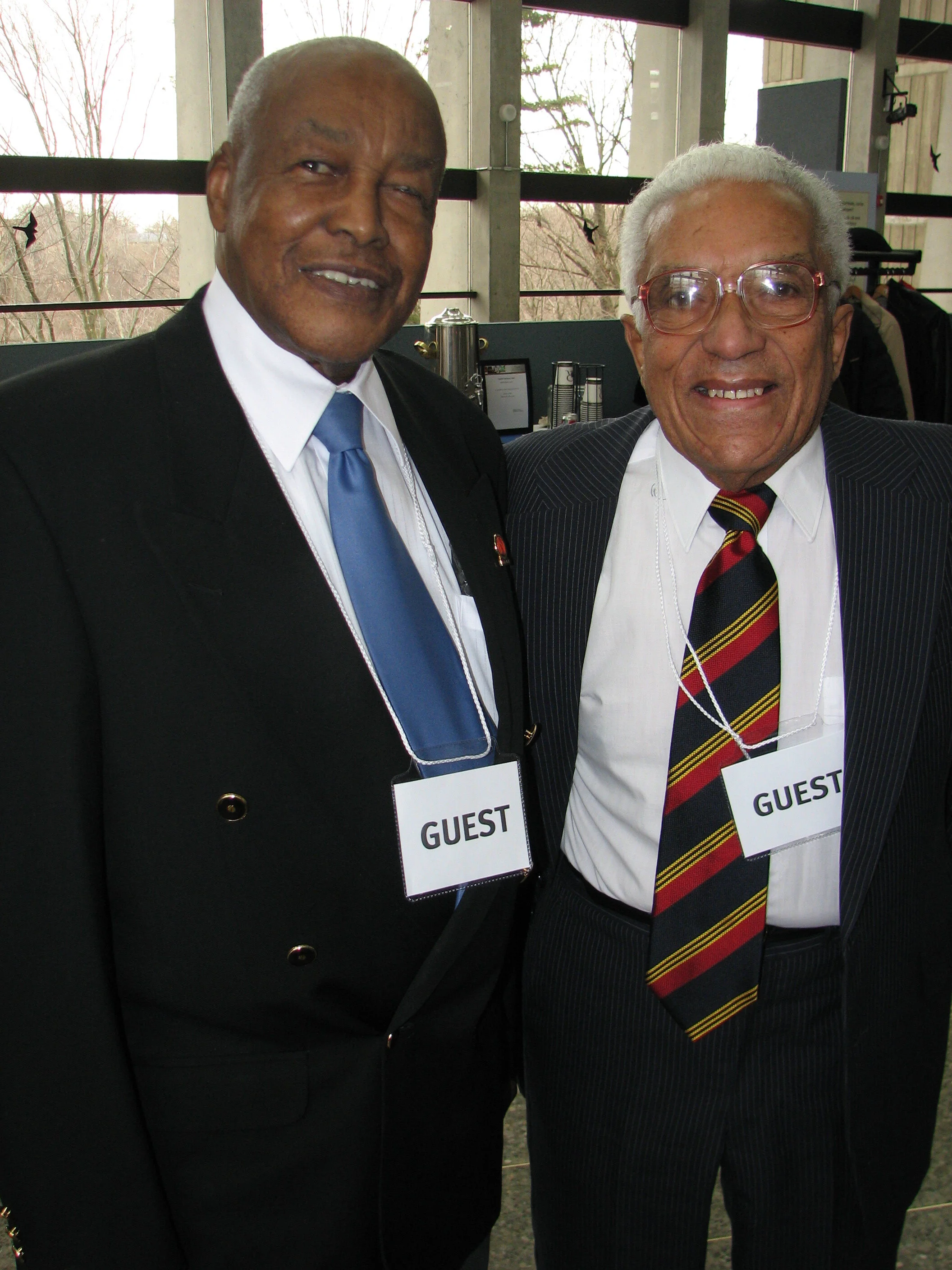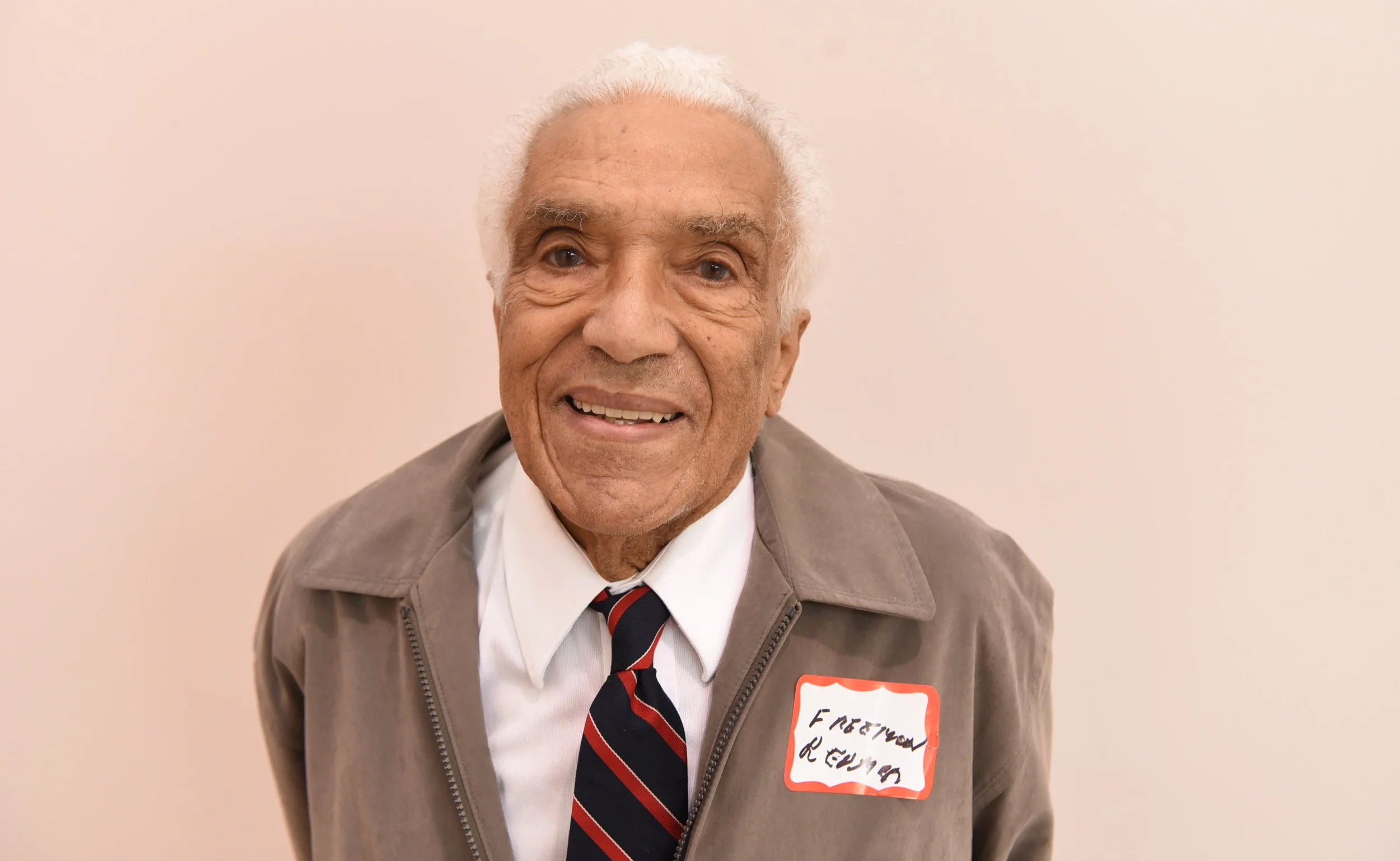Freemon Redmon built his Scarborough home 70 years ago
April 29, 2020
When Freemon Redmon started high school at Vaughan Road Academy (VRA) in the early 1940s, he was the only Black in a student population of about 1,500.
“I might have been different, but I wasn’t treated differently,” he told me three years ago at the school’s farewell tribute reunion. “I was treated well and I enjoyed my time there.”
The City of York first high school closed on June 30, 2017 after been operational for 91 years.
Redmon, who passed away at his Scarborough home at age 95 on April 19 and was buried two days later, was a constituent in Deputy Mayor and Councillor Michael Thompson’s Scarborough Centre riding.
Freemon Redmon attended his high school farewell tribute reunion in the summer of 2017
“He had a rich history in this area as one of the first Blacks to buy land when it was farmland,” said Thompson. “He brought people together and was well respected in this community.”
The trailblazer left high school in 1943 to help his father, Nathaniel Redmon, who established the first Black haulage company in Toronto. Major developers in the city used Redmon Haulage, which had a fleet of 12 trucks, to haul bricks and lumber around town.
Married to Nova-Scotia born Winnie Upshaw for 70 years, Redmon also owned a haulage company before becoming a home improvement specialist. Like their father, he and two of his brothers – Nathan and John – built their own homes.
Redmon and his family lived in the house he built seven decades ago near Warden Ave. and Lawrence Ave. E.
“My uncle wasn’t welcomed by neighbours when he bought property in Scarborough and built his own home brick by brick,” said Bernice Carnegie. “He was an amazing person in that he was all about family. He was the person that our American side of the family gravitated to.”
In the summer of 2013, the Canadian family members hosted a weekend reunion to celebrate the centenary of the Redmon’s presence in this country.
Though Illinois had some of the most progressive anti-discrimination laws in the United States after the Civil War, Blacks in Chicago in the early 1900s were subjected to the same prejudices as those in the South.
Jobs and decent housing were scarce because of the fierce competition among different groups of people at a time when the city’s population was dramatically growing.
Freemon Redmon with his nieces Bernice Carnegie (l) and Marion Coleman at the 2013 family reunion in Toronto
It was against this background that cab driver Nathaniel Redmon and his partner, Goldie Bishop, along with their only child at the time, Helen, moved to Canada in 1913 in search of a better quality of life. Settling in Toronto, the couple married six years later and the union produced five more children.
With the imposition of COVID-19 pandemic restrictions, just 10 family members were able to attend the funeral.
“That was very, very hard,” said Redmon’s daughter Kathleen Petrie. “Under normal circumstances, there would have been about 200 people at his funeral. He reached out to so many during his lifetime and a lot of them from both Canada and the United States would have been there. My dad loved his family unconditionally.”
Freemon Redmon (r) with Warren Salmon (l) and his mother Bev Salmon and her grandkids, Dr. Sheldon Taylor and the late Leonard Braithwaite at the Northern Lights exhibition
In 2010, he collaborated with historian and curator Dr. Sheldon Taylor on the Northern Lights: African-Canadian Stories exhibit at the Ontario Science Centre.
“Freemon provided information about his family,” said Taylor. “Filled with an entrepreneurial spirit, he was very knowledgeable, resourceful and someone who was able to bridge the divide between the new Caribbean and the Black Canadian communities in this city.”
Freemon Redmon (r) with Stanley Crowley, who passed away last February at age 92, at the Northern Lights exhibition in 2010
Besides his wife, Redmon is survived by seven children (one of them adopted), 14 grandchildren and 10 great grandchildren.
His older sister, Audrey Carnegie who was married for 63 years to hockey pioneer Herb Carnegie, and Jack Riley were VRA’s first Black graduates. She died in 2003 at age 84 while Riley, who served in World War II and was the first Black student to graduate with an electrician’s certificate before starting his own company – JJ Riley Electrical in 1953 – passed away in 2014 at age 92.










